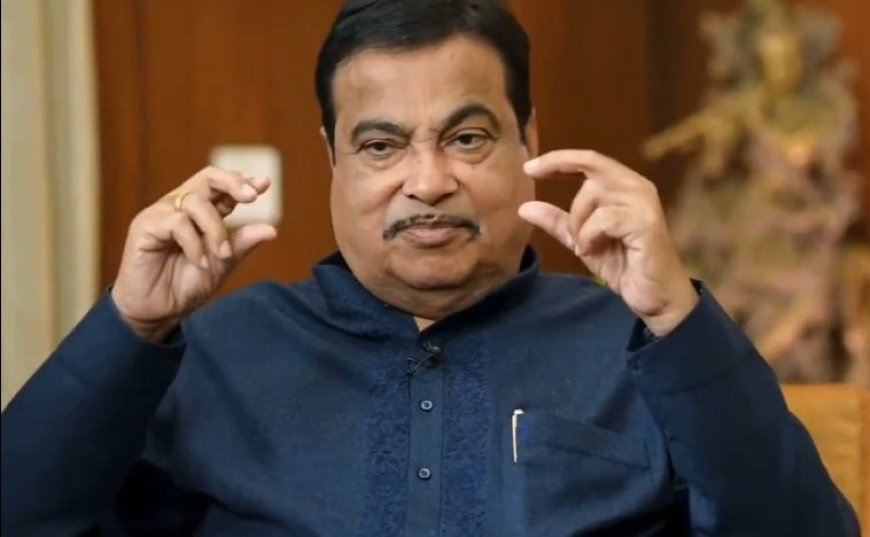Nitin Gadkari Values Brain at Rs 200 Crore Monthly in Ethanol Policy Defense
Nitin Gadkari defends ethanol policy, valuing his brain at Rs 200 crore monthly, stressing integrity, farmer gains, and sustainable fuel solutions.

Introduction
In mid-September 2025, India’s Union Minister Nitin Gadkari made headlines with a bold statement: “My brain is worth Rs 200 crore a month.” He said this during a public meeting in Nagpur, as part of his response to criticism around the ethanol blending policy (E20 petrol), allegations of conflict of interest, and doubts over its impact on farmers, vehicle safety, and environment. The remark was meant to assert his integrity, highlight his contributions, and push back against claims of profiteering.
Background & Context
What is the Ethanol Policy / E20 Petrol?
-
The Indian government has promoted ethanol blending in petrol—specifically, adding 20% ethanol (E20) to petrol—to reduce dependence on fossil fuels, cut carbon emissions, improve air quality, support farmers by creating more demand for crops (like sugarcane and maize), and reduce import bills for crude oil.
-
Supporters argue it helps multiple sectors: farming, environment, rural incomes. Critics, however, raise concerns about food vs fuel trade-offs, water usage, effects on vehicle performance, durability, and consumer choice.
What Triggered Gadkari’s Statement?
-
Opposition parties and critics alleged possible conflict of interest because two leading ethanol companies are run by Gadkari’s sons. They suggested this might benefit him or his family financially.
-
Also, there has been backlash over concerns: whether E20 petrol is safe for all vehicles; whether older / non-compliant vehicles get damaged; whether ethanol production strains water resources; whether it leads to food inflation, etc.
Why Did He Say “My Brain Is Worth Rs 200 Crore Monthly”?
This phrase serves several purposes:
-
Defensive Posturing — He is pushing back against accusations, essentially saying, “I don’t need to compromise for money; my contributions & intellect are worth far more than what people imagine.” He is rejecting narratives that paint him as profiting from the policy.
-
Self-Assertion of Integrity — Emphasizing that his actions are guided by ideas, policy goals, and benefits to farmers and environment—not personal profit or corruption.
-
Political Signalling — Make a statement to the public, political class, media that accusations won’t diminish his stance; that he sees value in his advisory / leadership role that isn’t monetary. Also, possibly to discourage further allegations or attacks.
-
Shifting Focus to Policy Benefits — Using boldness to draw attention away from scandals / rumors, and back to what the policy is doing (helping farmers, reducing imports, environmental gains).
Key Points & Recent Updates
-
The remark was delivered at an event by the Agricos Welfare Society in Nagpur.
-
Gadkari repeated he is not short of money and asserted he does not engage in fraud.
-
He also referred to business activities of his sons — import-export, sugar factories, distillery, power plants — stating these are legitimate and he gives ideas but does not engage in wrongdoing.
-
Criticism: some drivers / automobile experts claim older vehicles are not compatible with E20. Also, water usage for ethanol crops (sugarcane, maize) remains a concern. Some protests or concerns raised by consumer groups.
Significance & Why It Matters
-
Public Trust and Policy Acceptance: If citizens believe policymakers are clean and policy makers are acting in public interest, the ethanol blending policy is more likely to succeed. Trust reduces resistance.
-
Impact on Farmers: Ethanol demand raises prices for crops like maize, sugarcane. That can improve farmer incomes. Already reported gains for maize producers in certain states.
-
Environmental and Energy Strategy: E20 helps reduce fossil fuel import dependency, lower pollution, reduce carbon emissions. It aligns with global mandates on cleaner fuels.
-
Political Implications: The row has implications for how policies are critiqued; whether allegations are political vs. substantive; how ministers defend themselves publicly.
Advantages & Disadvantages
Here is a breakdown of pros & cons of both Gadkari’s stance and the ethanol policy controversy.
| Advantages / Positives | Disadvantages / Risks / Criticisms |
|---|---|
| Supports farmers: better prices, new demand for crops. | Risk of water stress, especially in drought-prone / water scarce regions. |
| Cleaner fuel: lower emissions, reduced pollution. | Automotive concerns: compatibility, wear & tear in older vehicles; possible higher maintenance. |
| Reduces import bills for fossil fuels. | Critics suggesting potential conflict of interest; perception of nepotism. |
| Promotes rural economic development and value addition. | Food vs fuel conflict: dedicating agricultural land to fuel vs food crops. |
| Stimulates allied industries: sugar mills, distilleries, ethanol infrastructure. | Public suspicion, political backlash if transparency is not maintained. |
Final Thoughts & Conclusion
Nitin Gadkari’s claim that his brain is worth Rs 200 crore a month is more than a flamboyant soundbite. It is a defensive strategy, a declaration of dignity, and a way to shift focus to the benefits of the ethanol policy: helping farmers, reducing dependency on imported fuel, lowering pollution. Whether people agree or not, his stance underscores that political controversies often revolve not just around policy substance, but perception, integrity, and narrative.
For the ethanol policy to succeed, the government needs to continue transparency, independent validation of environmental & mechanical safety, mechanisms to ensure small farmers also benefit, and safeguards to avoid misuse or unfair gain.
In conclusion, while Gadkari's statement will be dissected and debated, what matters most is how the ethanol policy shapes outcomes in real life—farmer incomes, environment, automotive performance, and public trust. If those deliver, the rhetoric becomes less relevant; if not, critics will continue to hold the spotlight

 Ellofacts
Ellofacts 





